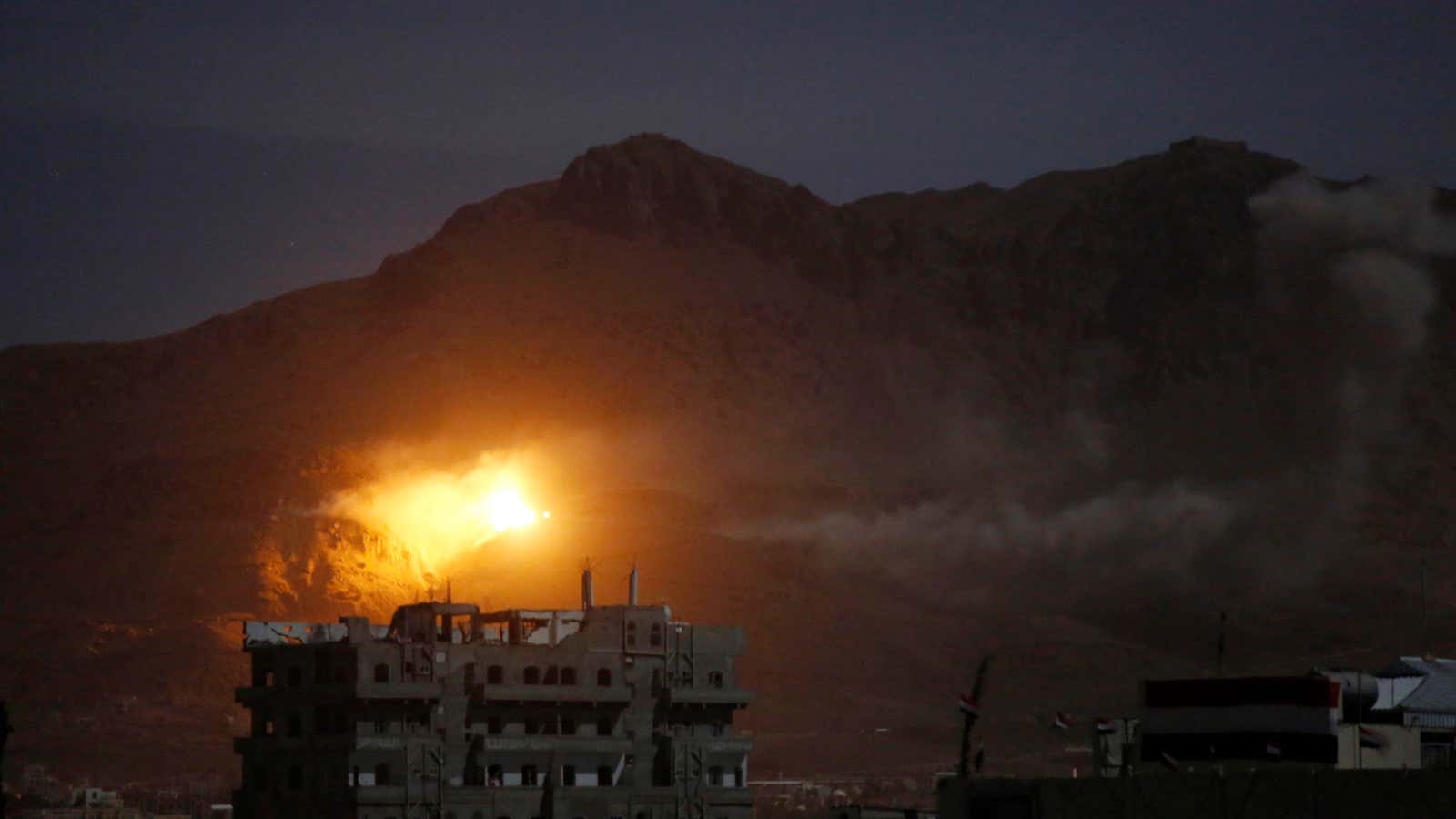Leaked documents recently showed that Saudi Arabia struck a dodgy deal with the UK to obtain its seat on the United Nations’ 47-member human rights council (HRC). The Middle Eastern kingdom has an awful human rights record—though to be fair the same can be said of other HRC members.
But if Saudi Arabia’s inclusion in the HRC—and its ambassador’s chairmanship of a key HRC panel—was lamented by global human rights defenders, its actual impact there has been downright scandalous. This week, Saudi Arabia reportedly pressured the council into dropping an inquiry it was planning to launch into human rights abuses in Yemen’s ongoing civil war, in which a Saudi-led coalition has been accused of indiscriminate bombings of rebel-held areas. On Monday, according to Doctors Without Borders, Saudi forces bombed a wedding near the western port city of Mokha and killed at least 130 civilians, mostly women and children.
According to the New York Times, the Netherlands yesterday (Sept. 30) withdrew a draft resolution—due largely to Saudi pushback—which would have instructed the UN high commissioner for human rights to send investigators to Yemen and to ask the warring parties to allow humanitarian deliveries of food and aid.
“In the face of stiff resistance from Saudi Arabia and its coalition partners, and to the dismay of human rights groups, Western governments have accepted a resolution based on a Saudi text that lacks any reference to an independent, international inquiry,” the Times reported. The new resolution asks the HRC only for “technical assistance.”
Philippe Dam, deputy director of Human Rights Watch, told the Times that this is “a lost opportunity” for the HRC ”and a huge victory for Saudi Arabia, protecting it from scrutiny over laws of war violations which will probably continue to be committed in Yemen.”
Saudi Arabia supports the exiled Yemeni president Abdu Rabbu Mansour Hadi, and the Saudi-led coalition fighting Yemen’s Houthi rebels has instituted a blockade at the country’s ports. It is meant to stop the Houthis from obtaining supplies from Iran, but is also blocking access to sorely needed aid for civilians.
